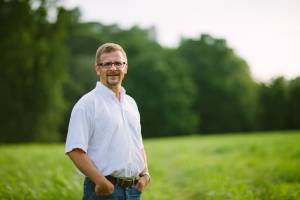“When I read Scripture, I see it not as a manual to prepare people to leave Earth, but instead to live more responsibly within it,” says Norman Wirzba, professor of theology and ecology at Duke Divinity School. For Wirzba, that responsibility includes a mandate to share in God’s love for all creation and to live harmoniously with the earth and its human and non-human creatures – it’s a view of theology that has ecology as a central Scriptural concern.
Wirzba works at the intersections of theology, philosophy, ecology, and agrarian and environmental studies. He is the author, most recently, of From Nature to Creation: A Christian Vision for Understanding and Loving Our World, Food and Faith: A Theology of Eating and (with Fred Bahnson) Making Peace with the Land: God’s Call to Reconcile with Creation. His current research is centered on the doctrine of creation and a restatement of humanity in terms of its creaturely and creative life.
“My work is an attempt to recover the doctrine of creation,” he says. “I believe this is one of the most important tasks for theological education today, because unless we do, we’re going to have a great deal of difficulty talking about what I think is the most pressing concern for us today –the fact that we are facing serious environmental and ecological challenges.”
Through courses like “Caring for Creation” and “The Theology and Spirituality of Place”; his many lectures, books, and articles; and advocacy work in rural and urban church communities, Wirzba shares his view that theology – and theological education – need to recapture a sense that the flourishing of all life matters, not just human life. In addition, he sees a troubling tendency for theological education to become so specialized that theology itself becomes siloed, and larger questions, contexts, and connections are lost. Ecological concerns are more than a specialized interest, he says, they’re integral to our core inspiration to see everything through God, to see everything with the eyes of faith.
He also argues that if we get the doctrine of creation wrong, a lot else will go wrong theologically as well.
“What I’m interested in cultivating is ecological wisdom that is deeply theological – a rich notion that human life is always embedded with the life of others,” he says.
Read Wirzba on “All Creatures” in The Christian Century »
